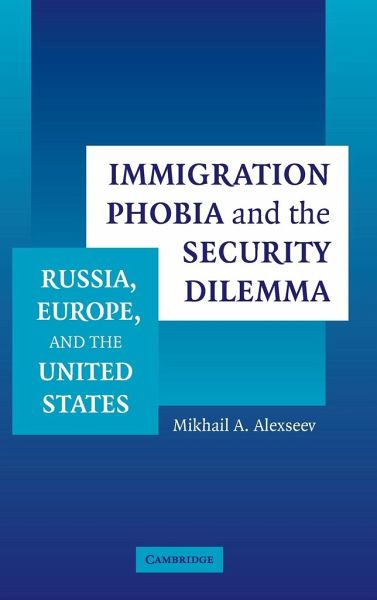
Immigration Phobia and the Security Dilemma
Versandkostenfrei!
Versandfertig in 1-2 Wochen
104,99 €
inkl. MwSt.

PAYBACK Punkte
52 °P sammeln!
In this post 9/11 world, many people are justifiably concerned about the security implications of international migration. But do they really understand their fears? Would it help to enact pre-emptive, fear-based policies on immigration? These questions are incisively explored through a careful comparison of immigration attitudes in the Russian Far East, European Union, and the United States which suggests that unilateral restrictions on immigration decrease security for all states. The book recommends new global, national, and local institutions to manage migration.




